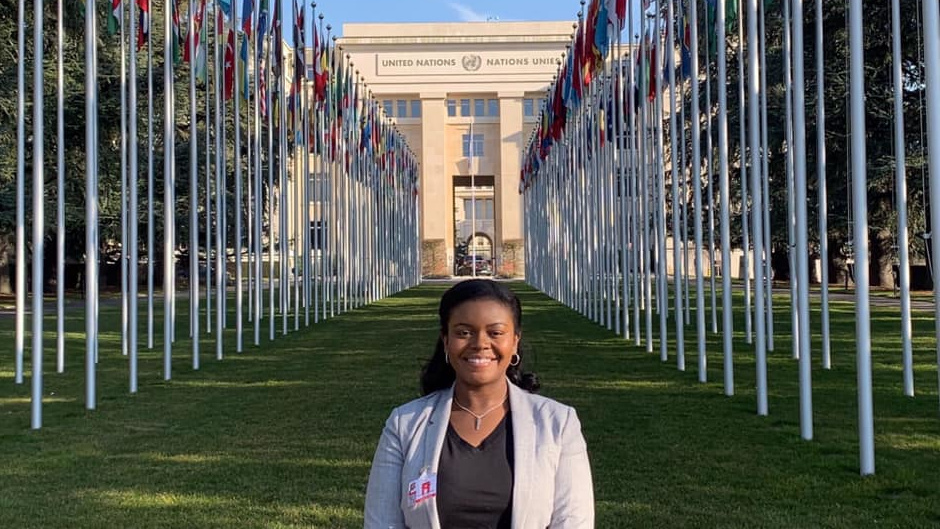Last month, second-year law students Gabrielle Wynn and Romney Manassa and Human Rights Clinic’s Associate Director Tamar Ezer had the opportunity to travel to Geneva, Switzerland to meet with the United Nations Committee on Economic, Social and Cultural Rights, UNAIDS, and staff of the UN Special Rapporteur on Violence Against Women. The UM “Team Estonia” played a vital role in advocacy on the issue of women who use drugs and women living with HIV/AIDS in Estonia.
Manassa provided a statement before the Committee during a public meeting, and the team briefed the Committee on systematic violations of women’s rights to equality, health, family, and freedom from violence. The Miami Law group also had the opportunity to advocate with several committee members individually.
In many countries, draconian drug laws intersect with deep-rooted gender discrimination to reap a heavy toll on women who use drugs. Most of these women already face poverty and higher rates of violence, sexual assault, and HIV. Punitive drug policies only increase their vulnerability, denying protection and access to medical care, harm reduction, and reproductive health services.
However, this remains a neglected problem. “Human rights bodies have paid scant attention to widespread violence and discrimination against women who use drugs,” said Ezer. “All too often, police function as gatekeepers to services, and women are trapped.”
In Estonia, police, medical professionals, and child protection services work together to systematically deprive women who use drugs of their human rights. The stigma and discrimination associated with drug use contradict the traditional notion of a woman as a mother and caretaker, leaving women to suffer from inaccessible and inadequate healthcare services, disclosure of their drug use and HIV status, forced drug testing, gender-based violence, and the deprivation of their parental rights.
In collaboration with Estonian and international NGOs — including the Canadian HIV/AIDS Legal Network, the Eurasian Harm Reduction Association, and the Estonian Association of People Who Use Psychotropic Substances — the Estonia Team is drafting a submission to the United Nations Working Group on the issue of discrimination against women in law and practice. They hope to highlight the plight of women who use drugs in Estonia and aim to pressure the Estonian government to address violations, supporting local advocacy, as well as to raise the global profile of these concerns.
The team has also worked on two reports to supplement the submission—one that provides a global look at the experiences of women who use drugs and recommendations to better protect their health and rights, and another detailing alternative models to punitive drug policies.
“One of the amazing things about working on this project was that it completely changed my perspective,” said Wynn. “I began to understand the complexities of drug use and that drug use does not preclude human rights, nor does it alone warrant the deprivation of parental rights.”
Team Estonia was gratified to see its research and findings presented by the Committee to Estonian officials during the government’s subsequent hearing, according to Ezer. Not only did the students have a front seat to the workings of the UN human rights system, but they met with staff of other UN entities, such as UNAIDS and the UN Special Rapporteur on Violence Against Women, broadening the scope and resources for the project.
“We left Geneva exhilarated and hopeful that the committee will adopt our recommendations and spur Estonia into action,” said Manassa. “We also came away with a greater appreciation for what the international system can accomplish.”
More on the Human Rights Clinic.

